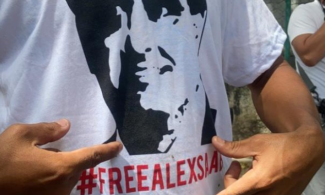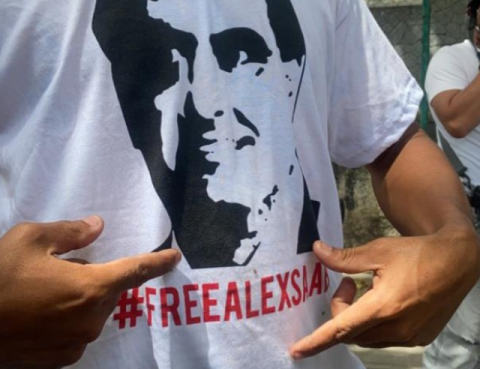
This comes after the Economic Community of West Africa States (ECOWAS) court ruled that Saab's arrest and extradition attempt was illegal.
The Cape Verdean court on Tuesday approved the extradition of Alex Saab, the embattled Venezuelan diplomat, to the United States.
This comes after the Economic Community of West Africa States (ECOWAS) court ruled that Saab's arrest and extradition attempt was illegal.

On Monday, March 15, the ECOWAS court ruled that since there was no Red Notice in place when Saab was arrested, directing Cape Verde authorities to release him immediately.
[story_link align="left"]91486[/story_link]
However, on Tuesday, a Cape Verdean Supreme court ruled that Saab should be extradited to the United States.
In its ruling, the Cape Verdean Supreme Court explained that it refused to comply with earlier decisions of the ECOWAS court because "it considers itself as not legally bound to the said protocol."
However, this contradicts the action of the then Prime Minister of Cape Verde, José Maria Pereira Neves, who signed the Final Communiqué of the 28th session of ECOWAS Heads of State and Government held in Accra on January 19, 2005.
The communique signed by Pereira, on behalf of Cape Verde, included the provisional application of the Protocol.
However, according to Saab's defence team at the ECOWAS court led by Femi Falana, SAN, there can be no debate about the binding nature of the court’s decision on Cape Verde.
Falana noted that if ECOWAS wants its highest human rights court to continue to command respect on the continent, its senior officials, and Heads of member states, must condemn the actions of Cape Verde.
[story_link align="left"]91580[/story_link]
Similarly, the head of Saab's defence team in Cape Verde, Jose-Manuel Pinto, described the action of the Supreme Court as a destruction of the global diplomatic order and the sanctity of diplomatic missions which has been established over several centuries.
Earlier on Monday, March 1, the African Bar Association had for reasons similar to those cited by the ECOWAS court, condemned Saab's detention and planned extradition.
According to a statement signed by the association's President, Hannibal Uwaifo, it reached a position following the conclusion of an investigation into the matter by the Human Rights and International Law Committees of the association on the authorisation of the governing council.
The first condition given by the association is that there was no Red Notice (used as a basis for the detention) at the time of the detention because it was issued the next day. Similarly, the association noted that no evidence of the supporting arrest warrant issued by the United States has been shown to Ambassador Saab or his defence team since his detention.
The second basis was that Saab enjoys immunity and inviolability due to his status as a Special Envoy of Venezuela and he was carrying documents which identified him as such and the purpose of his humanitarian Special Mission to Iran. Despite this, the evidence has been ignored by Cape Verde to accommodate the externally motivated interests.
Falana had written to the government of Cape Verde, requesting compliance with the judgment of the community court of justice of the Economic Community of West African states.
Falana on Tuesday urged the Cape Verdean president, Jorge Fonseca, and Prime Minister, Jose Silva, to ensure compliance with the judgment of the court.
The ECOWAS Community Court of Justice presided over by Justice Edward Asante, held that Saab's arrest was unlawful and illegal.
The court also asked for the immediate release of the Venezuelan diplomat.
It also ordered the discontinuation of all procedures and processes to extradite Saab to the United States of America, and indemnify Saab with the sum of $200,000.
Falana, in his letter, stated that Cape Verde is an important member state of the African Union and ECOWAS, thus has both legal and moral responsibility to abide by the judgment of the Community Court of Justice.
He also requested the government of the Republic of Cape Verde to provide a safe passage for Saab so he could assume his diplomatic duties as an Alternate Permanent Representative of the Bolivarian Republic of Venezuela to the African Union.
The letter read partly, “Yesterday, 15 March 2021, the Court of Justice of the Economic Community of West African States (ECOWAS Court) issued its judgment regarding the arrest and extradition process to the United States of the Special Envoy of the Bolivarian Republic of Venezuela, Alex Saab.
“In the said judgment, the ECOWAS Court orders the authorities of the Republic of Cape Verde to release Mr. Alex Saab with immediate effect in the restoration of his freedom of movement; discontinue the execution of all procedures and processes to extradite Mr. Saab to the United States of America; indemnify Mr. Saab in the sum of USD200,000 (Two hundred thousand dollars) for the moral damages suffered as a result of his illegal arrest and detention.”